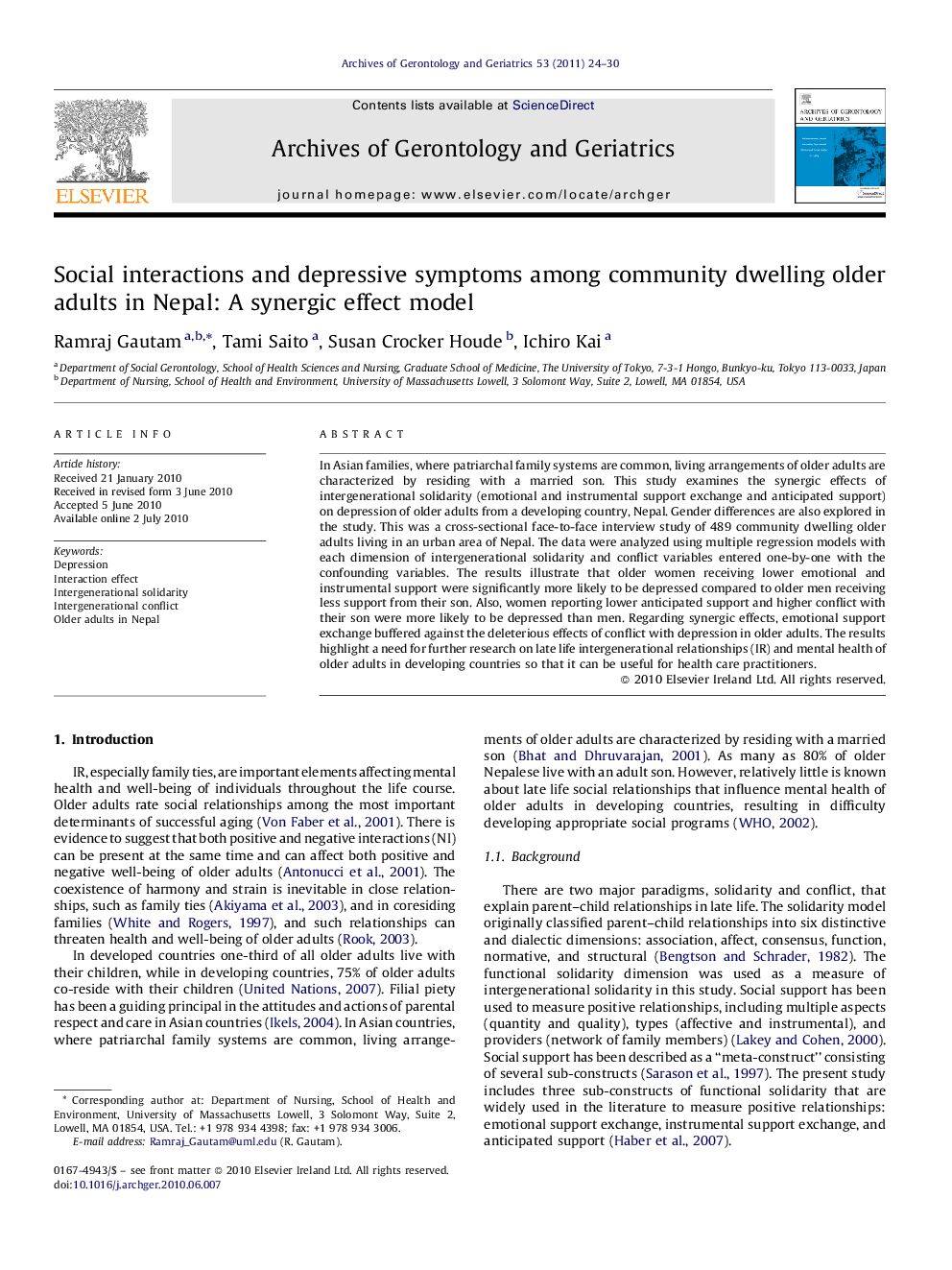| Article ID | Journal | Published Year | Pages | File Type |
|---|---|---|---|---|
| 1903039 | Archives of Gerontology and Geriatrics | 2011 | 7 Pages |
In Asian families, where patriarchal family systems are common, living arrangements of older adults are characterized by residing with a married son. This study examines the synergic effects of intergenerational solidarity (emotional and instrumental support exchange and anticipated support) on depression of older adults from a developing country, Nepal. Gender differences are also explored in the study. This was a cross-sectional face-to-face interview study of 489 community dwelling older adults living in an urban area of Nepal. The data were analyzed using multiple regression models with each dimension of intergenerational solidarity and conflict variables entered one-by-one with the confounding variables. The results illustrate that older women receiving lower emotional and instrumental support were significantly more likely to be depressed compared to older men receiving less support from their son. Also, women reporting lower anticipated support and higher conflict with their son were more likely to be depressed than men. Regarding synergic effects, emotional support exchange buffered against the deleterious effects of conflict with depression in older adults. The results highlight a need for further research on late life intergenerational relationships (IR) and mental health of older adults in developing countries so that it can be useful for health care practitioners.
